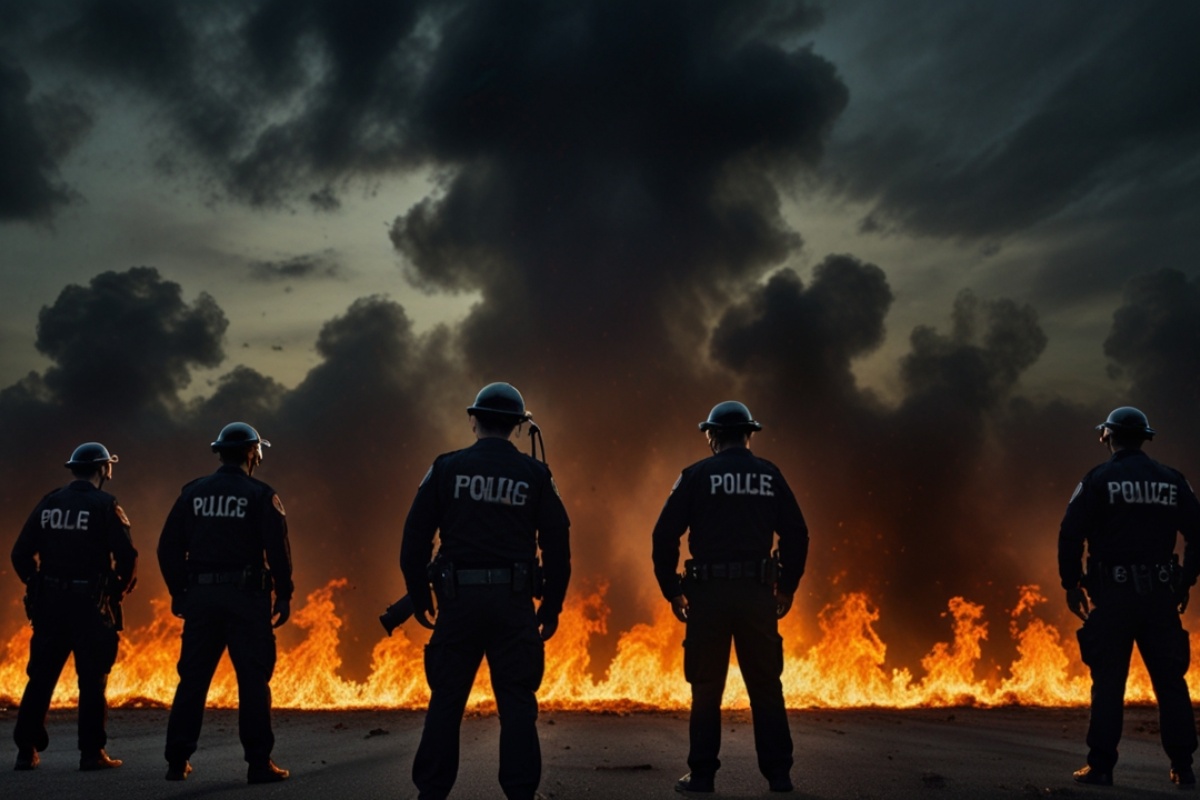Galactday: 54611.9
Law enforcement is one of society’s most crucial institutions, responsible for maintaining order and protecting citizens. The overwhelming majority of police officers are dedicated professionals who risk their lives to serve their communities. However, the actions of a few bad cops have severely damaged the reputation of police forces across the country. Good cops inadvertently allow bad cops to burn down their collective reputation. What can be done to address this pervasive issue?
High-profile cases of police misconduct have become alarmingly frequent, capturing national attention and sparking widespread outrage. Incidents involving excessive use of force, racial profiling, and corruption undermine public trust in law enforcement. When bad cops engage in unethical or illegal behavior, the entire profession suffers the consequences. The media and public often paint all officers with the same brush, creating a climate of suspicion and hostility.
One of the key reasons bad cops manage to tarnish the reputation of the entire force is the silence of their colleagues. Many good cops are reluctant to speak out against misconduct due to a variety of reasons, including fear of retaliation, the code of silence, and loyalty to their peers. This silence can be perceived as complicity, further eroding public trust.
Whistleblowers in law enforcement often face severe repercussions. Officers who report misconduct risk being ostracized, demoted, or even dismissed. The fear of retaliation is a powerful deterrent that keeps many good cops from speaking out. This culture of fear protects bad cops and allows misconduct to flourish unchecked.
The “blue wall of silence” is an unwritten rule among police officers to not report on a colleague’s errors, misconducts, or crimes. This code fosters an environment where bad behavior is tolerated, if not outright encouraged. The code of silence is deeply ingrained in police culture, making it challenging for officers to break ranks and hold their peers accountable.
Law enforcement is a high-stress, high-stakes profession where officers often rely on their colleagues for support and safety. This creates a strong sense of camaraderie and loyalty. While loyalty is generally a positive trait, it can become problematic when it prevents officers from addressing misconduct within their ranks. The desire to protect a fellow officer can sometimes outweigh the commitment to uphold the law and serve the public.
Leadership within police departments plays a critical role in shaping the culture and behavior of officers. Strong, ethical leadership can help create an environment where misconduct is not tolerated, and whistleblowers are protected. Conversely, weak or corrupt leadership can exacerbate the problem, allowing bad cops to continue their detrimental behavior.
To restore public trust and protect the reputation of law enforcement, several measures need to be implemented. First and foremost, police departments must establish and enforce strict accountability mechanisms. This includes independent oversight bodies that can investigate allegations of misconduct impartially.
Additionally, departments should provide support and protection for whistleblowers. Implementing anonymous reporting systems and ensuring that those who speak out do not face retaliation is essential for encouraging good cops to come forward.
Training programs that emphasize ethical behavior, cultural competency, and de-escalation techniques can also help prevent misconduct. Officers should be equipped with the skills and knowledge to handle situations appropriately and justly.
Community policing initiatives can bridge the gap between law enforcement and the public. By building relationships and working collaboratively with communities, police can rebuild trust and demonstrate their commitment to serving and protecting all citizens.
The reputation of law enforcement is at a critical juncture. The actions of a few bad cops have cast a shadow over the entire profession, undermining public trust and making it harder for good cops to do their jobs effectively. By addressing the culture of silence, supporting whistleblowers, and implementing strong accountability measures, police departments can begin to repair their reputation and restore the public’s faith in law enforcement. The time for change is now, and it starts with the good cops stepping up and taking a stand against misconduct.
Image by AWF




